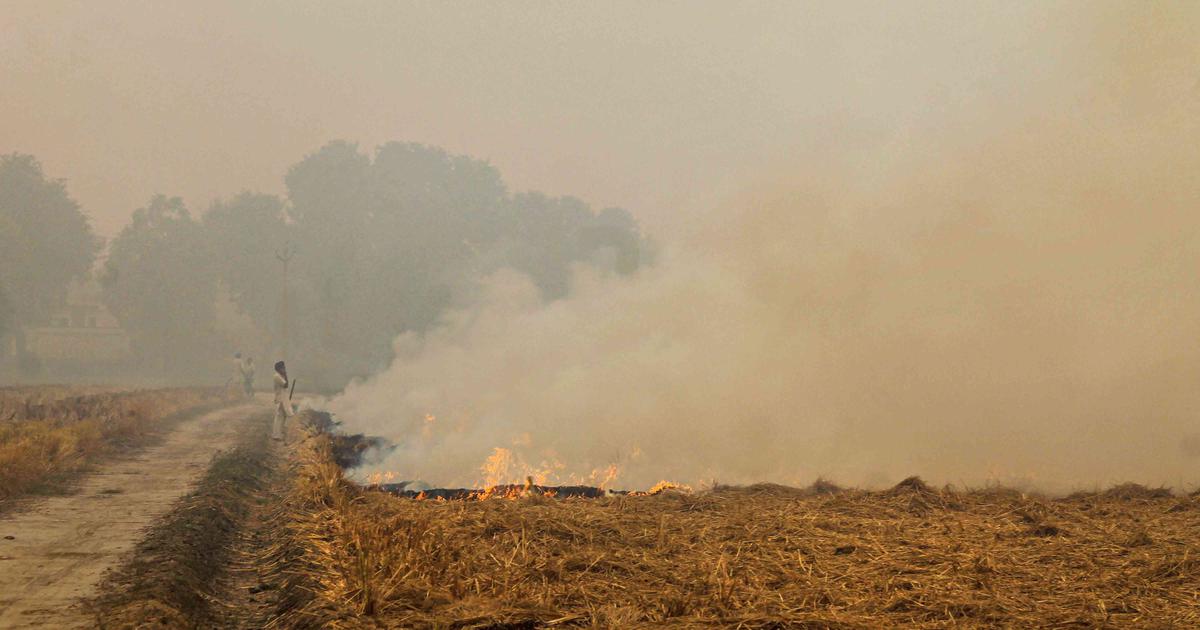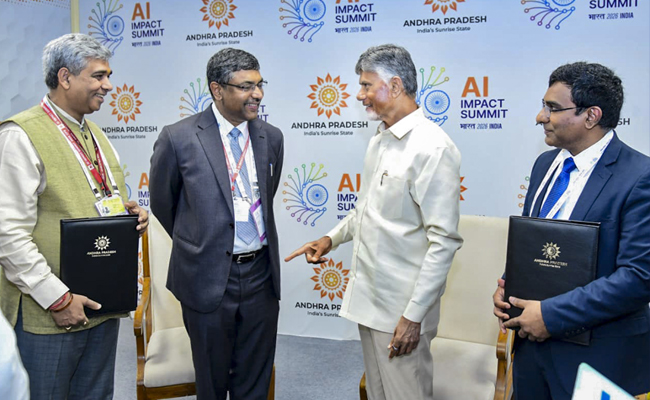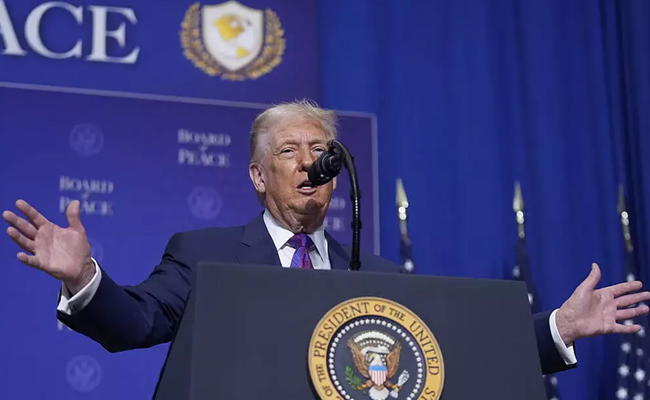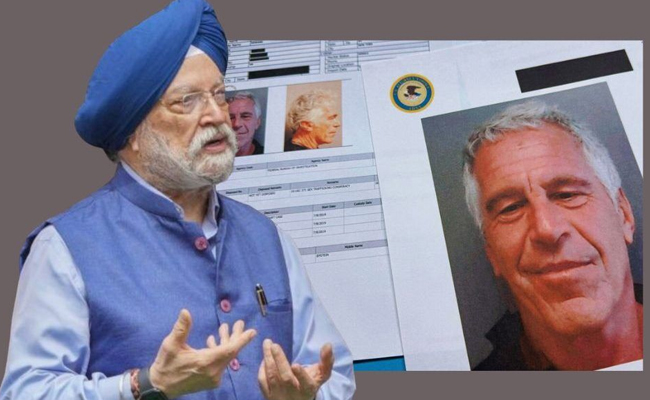New Delhi, (PTI): Not only have the number of farm fires in Punjab and Haryana this season been the lowest since 2016, the national capital also witnessed the least smoke intrusion from stubble burning during October-November in four years, according to a Centre for Science and Environment analysis.
Analysis of data from SAFAR, the Union Ministry of Earth Sciences' air quality forecasting agency, shows that smoke from farm fires contributed to PM2.5 pollution in Delhi on 53 days this year, starting October 12.
The figure is lower than the previous three years when smoke intrusion was reported on 56-57 days but higher than the 2018 reading of 48 days.
The highest contribution this year was 34 per cent on November 3. Last year, the share of farm fires in Delhi's PM 2.5 pollution peaked to 48 per cent on November 7.
The Centre for Science and Environment (CSE) said stubble burning-related smokefall over Delhi depended on two major factors -- the number and intensity of farm fires and meteorological conditions conducive for the transportation of the smoke to the national capital.
This October-November, not only have the quantity and intensity of farm fires been comparatively lower but also the meteorological conditions less conducive for transport of the smoke, the green think tank said.
The CSE estimated that smoke from farm fires accounted for 4.1 tonnes of PM2.5 during October-November in Delhi. This is 37 per cent lower than 6.4 tonnes of PM2.5 from stubble burning last year and almost half the 2020 figure (8 tonnes).
The volume this year is also significantly lower than the 2019 figure (6.4 tonnes) -- an indicator of the meteorological help Delhi got as there were fewer farm fires in 2019.
According to the Indian Agriculture Research Institute, Punjab, which accounts for the maximum cases of stubble burning every year, reported just 49,922 farm fires this season (September 15 to November 30) against 71,304 last year and 83,002 in 2020.
The agrarian state logged 50,738 incidents of stubble burning in 2019; 59,684 in 2018; 67,079 in 2017 and 1,02,379 in 2016.
Haryana logged 3,661 farm fires this season against 6,987 in 2021 and 4,202 in 2020. The neighbouring state saw 6,364 incidents of stubble burning in 2019; 9,225 in 2018; 13,085 in 2017 and 15,686 in 2016.
Let the Truth be known. If you read VB and like VB, please be a VB Supporter and Help us deliver the Truth to one and all.
New Delhi/Amaravati (PTI): Andhra Pradesh Chief Minister N Chandrababu Naidu on Friday said the state is taking steps to transform itself into a knowledge and creator economy hub with a strong focus on artificial intelligence and quantum technology.
He noted that Andhra Pradesh has abundant tech-driven youth and the government is formulating plans to train them in futuristic technologies with support from global technology firms.
"Our goal is to transform Andhra Pradesh into a knowledge hub by focusing on AI, quantum computing, data centres, drone cities and space cities. The youth will remain our biggest asset over the next 25 years, and we seek global partnerships to scale up the creator economy," said Naidu during his interactions at the India AI Impact Summit 2026 in Delhi.
Naidu, who participated in the summit in the national capital, also held meetings with several global technology leaders and industrialists to explore collaborations in artificial intelligence, clean energy and innovation ecosystems.
He met Adobe CEO Shantanu Narayen, Autodesk AI Head Mike Haley, Aramco India Director Abdul Rehman AiThukair, LEGO Education Vice President Tom Hall, Aadhaar Founder and CTO Srikanth Nadhamuni, Khosla Ventures Managing Partner Vinod Khosla and others at the AP Pavilion.
The chief minister also held discussions with Saudi Aramco representatives on clean energy projects, including solar initiatives, and invited the company to expand operations in Andhra Pradesh, stating that the state is highly suitable for green energy production.
He sought support from NVIDIA Vice President Callista Redmond for establishing AI Living Labs and proposed partnerships through the Ratan Tata Innovation Hub to promote youth innovation, including collaborations with IIT Tirupati and Indian Institute of Science Education and Research (IISER) Tirupati under the Andhra Pradesh Future Innovation and Research for Science and Technology (AP FIRST) initiative.
Naidu urged Autodesk leadership to support the development of Global Capability Centres in design engineering and requested the establishment of an Innovation Academy in Amaravati aligned with quantum technology, besides proposing AI and robotics learning labs in partnership with LEGO Education.
He also discussed AI-driven smart governance solutions with Quantela Inc Chairman Sridhar Gadhi, while World Bank Group Digital AI Regional Director Mahesh Uttamchandani met Naidu on the sidelines of the summit.
Following the meetings, Naidu visited various exhibition stalls at the summit, including those of NVIDIA, Tata, Intel and Microsoft, and reviewed AI applications across agriculture, healthcare and industry.





